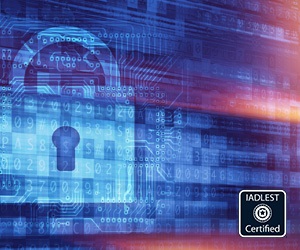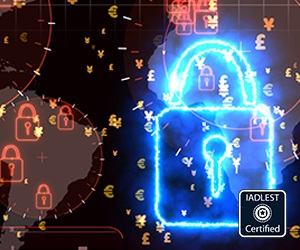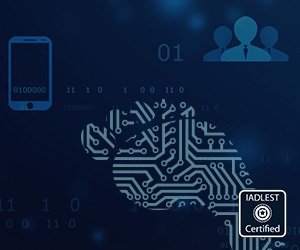
The first module of this course covers fundamentals such as recognizing computer components and their functions, accessing computer firmware, and the startup and shutdown processes. The second module covers how a hard disk drive works, how data is converted into digital information, how to calculate the storage capacity of a device, partitioning and how that is used for storage, and how a solid state hard drive functions.
» Read more
Click here for more information

This course provides an introduction to data encryption, covering the purpose of encryption as well as the process of encrypting data, and clarifying the distinctions between encryption and other operations like password protection and encoding. It explores the confusion, diffusion, and secret key encryption methods. Topics include detecting encryption (including recognition of some of the most popular types of encryption software), as well as proper procedures for law enforcement professionals who detect that encryption may be present on a device.
» Read more
Click here for more information

Trust is an essential component for reducing friction between people, organizations, government, and other entities. When trust is high, people are more willing to cooperate, require less assurances for doing so, and are less skeptical of the outcomes. Unfortunately, today’s climate of manipulated media, deep fakes, conflicting sources of information, and sensationalized news has raised many people’s level of skepticism. This makes building and maintaining trust particularly difficult but also incredibly important. This course will provide an overview of factors that contribute to public trust in law enforcement’s use of current and emerging digital technologies.
» Read more
Click here for more information

This course provides a legal overview of what investigators are and are not permitted to do while conducting online undercover investigations. Topics include terms of service, entrapment and outrageous government misconduct, and wiretapping law as it relates to the recording and documenting of online activities. This course also covers defense strategies commonly used to counter online undercover investigations.
» Read more
Click here for more information

This course focuses on practical online search techniques. Students will learn about using the advanced features of popular search engines, accessing cached versions of websites, searching with images, and common signs of fake and manipulated images. This course is part of the Open Source Intelligence Modules. It can be completed as a stand-alone course or in combination with the other courses.
» Read more
Click here for more information

According to the FBI’s Internet Crime Complaint Center (IC3), ransomware attacks lead to several billion dollars lost each year. Law enforcement officers should know how to respond to and protect their agencies and communities from these attacks. This interactive module teaches participants how to recognize and respond to a ransomware attack and discusses how ransomware can affect devices and networks and how to prevent ransomware attacks.
» Read more
Click here for more information

With the rise of electronic evidence and the likelihood that the crimes you’re investigating are conducted with or supported by the use of mobile devices, the Internet, or cloud-based applications, preservation letters provide a means to prevent the destruction of electronic records and buy an investigator time to retrieve and analyze potential evidence.
» Read more
Click here for more information

This course introduces learners to the concept of digital footprints and best practices in protecting personally identifiable information (PII). Topics include limiting an individual’s digital footprint, protecting privacy on social media, opting out of data aggregator sites, and the consequences of oversharing personal information; as well as steps to take after becoming a target of doxing.
» Read more
Click here for more information
There is a digital component to nearly every crime. Today’s judge should have an understanding an insight of technology used in criminal cases involving digital evidence from computers, mobile devices, the cloud and other sources. DEJ is a 5-day course that provides every attendee with the requisite knowledge using a combination of lecture and practical exercises. One hour of ethics instruction will be included.
During this course, you will learn:
- Introduction to Cyber Crime and Computer Forensics
- Computer Hardware
- Operating Systems and their Respective Forensic Artifacts
- Data Concepts
- Search and Seizure of Digital Evidence
- The Electronic Communications Privacy Act (ECPA) and Authorizing the Collection of Digital Evidence from Third Party Providers
- The Forensic Process
- Electronic Evidence
- Introduction to Networks and the Internet
- Social Media
- Evaluating Expert Testimony
- Fifth Amendment: Encryption and Passwords
» Read more
Click here for more information
Understanding the forensic process is critical for a prosecutor navigating a criminal case with digital evidence. Prosecutors will dive deep into computers and mobile devices to find hidden artifacts, and learn to analyze multiple data sources together. ADEP is a 5-day course that provides every attendee with the requisite skills using a combination of lecture and practical exercises. One hour of ethics instruction will be included.
During this course, you will learn:
- The Forensic Process for Computers and Mobile Devices
- Sources of Digital Evidence
- OSX/Windows and their Respective Forensic Artifacts
- Data Carving
- Digital Data Analytics
- Search and Seizure of Digital Evidence
- Writing Search Warrants
- Cloud Storage
- Encryption
- Networks: Email,
» Read more
Click here for more information













